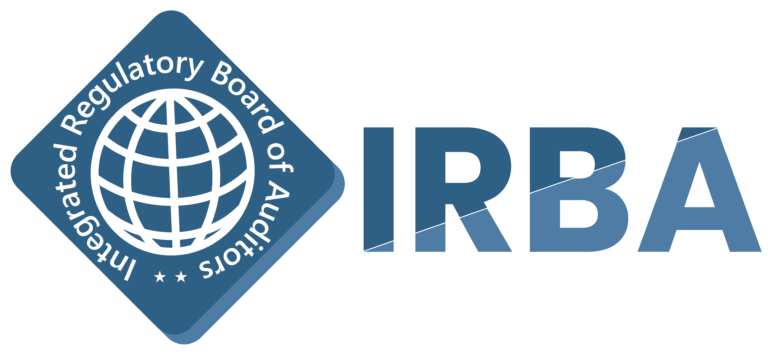
Accredited by IRBA & EOSH UK | Certified Training Provider

Course Overview
This course provides the students sufficient depth of understanding of process engineering in the context of mechanical engineering and industrial automation fields. The principles of unit operations, unit processes, fluid transport, and control provide the students with an understanding of how to apply these principles to control and instrumentation systems. Students will be able to perform complex process calculations for various industrial applications.
Course Benefits
You may be eligible to claim CPD points through your local engineering association.
Receive a Certificate of Completion from EIT.
Learn from well-known faculty and industry experts from around the globe.
Flexibility of attending anytime from anywhere, even when you are working full-time.
Interact with industry experts during the webinars and get the latest updates/announcements on the subject.
Course Details
This 12-week course, led by an industry expert will provide you with practical, in-depth view of the vibration analysis, balancing and alignment techniques.
The course provides a detailed examination of the detection, location and diagnosis of faults in rotating and reciprocating machinery using vibration analysis. The basics and underlying physics of vibration signals are first examined. The acquisition and processing of signals is reviewed followed by a discussion of machinery fault diagnosis using vibration analysis, and rectifying the unidentified faults.
The important topic of balancing is then discussed drawing on practical examples. Alignment and other machinery faults are then covered. Other often neglected areas of particle and chemical analysis, temperature monitoring and failure analysis are covered in practical detail. The course is concluded with a set of practical rules for a precision maintenance program including issues such as machines to monitor, managing the data usefully and scheduling maintenance.
You will have an opportunity to discuss precision maintenance for rotating machinery and associated applications, operations, maintenance and management issues. The focus will be on the most up-to-date information and best practice. Towards the end of the course, you will have developed the skills and ability to recognize and solve precision maintenance issues in a structured and confident manner, in working and improving the reliability and performance of their rotating machinery.
Course Structure
Module 1: Introduction to Process Engineering
Definition of a process, process modelling and design.
Process operations commonly encountered.
Concept of process integration.
Walk-through typical processes.
Process measurement and control – instrumentation, measurement, control and material of construction.
Module 2: Principles of Mechanical Engineering Mass and Energy
Conservation of mass and energy.
Entropy, Enthalpy and Exergy.
Module 3: Principles of Mechanical Engineering Thermodynamics-I
Thermodynamics properties of ideal and real gases.
Multicomponent mixtures.
Phase equilibrium in mixtures.
Module 4: Principles of Mechanical Engineering Thermodynamics-I I
Equilibrium for reacting systems.
Analysis of power and refrigeration cycles.
Thermodynamics calculations.
Module 5: Flow Phenomena and momentum transfer-I
Statics and hydraulic.
Types of Flow and fluid.
Flow through a pipe.
Module 6: Modelling of Industrial Process (ANSYS CFX/FLUENT)
Mixing of two Fluid.
Gas-Liquid Separation.
Multi-phase flow in a pipe.
Flow in a micro-channel (CCUS).
Module 7: Flow Phenomena and momentum transfer-II
Laminar and turbulent flow. Flow around objects.
Flow through Packed Beds. and Fluidized Beds.
Particle flow.
Multiphase flow.
Momentum transfer.
Flow equipment and measurement.
Module 8: Fundamentals of heat and mass transfer-I
Concepts of heat and mass transfer.
Mass transfer coefficients.
Mass transfer operations – Distillation, Extraction, Absorption, Adsorption, Evaporation, Leaching.
Module 9: Application of Industrial Processes-I (Hydrogen)
Production of green, blue and grey hydrogen (Electrolysis and Steam Reforming).
Application of hydrogen (EV, Chemical Industries, Power generation and storage, Liquefaction, and export).
Transport of hydrogen through existing natural gas pipelines.
Module 10: Application of Industrial Processes-II (Long Term Energy Storage)
Underground hydrogen storage process (pros and cons).
Compressed Air Energy Storage (CAES) process (Broken Hill Project, NSW).
Carbon capture utilization and storage process (CCUS).
Module 11: Application of Industrial Processes-III (Short Term Energy Storage)
Different types of batteries and applications in EV.
Li-ion battery manufacturing process.
Recycling of batteries for sustainable circular economy.
CO2 reduction toward net-zero emissions.
Module 12: Application of Industrial Process-IV (NiSO4 Production)
Fundamentals.
Plant layout fundamentals.
Process Flow Diagrams (PFDs).
Process and Instrumentation Diagrams (P&IDs).
Equipment used in process plants.
Mass and Energy balance.
Course Learning Outcomes
On successful completion of this course, students will be able to:
1. Have a deep understanding of unit operations, unit processes and transport principles in the context of industrial automation.
2. Acquire knowledge and become aware of recent advances in instrumentation, measurement and control underpinning plant operations.
3. Acquire an awareness of latest engineering materials and technologies to support process operations.
4. Understand the methodology of heat and mass balances (and utility balances) and be able to apply principles to generate heat and mass balances for process operations.
5. Synthesize and analyze property data, process information and requirements to create complex process flow diagrams, piping and instrumentation diagrams.
6. Synthesize and analyze property data, process information and requirements to perform complex process calculation.
Potential Job Outcomes
Mechanical engineering roles
Chemical/Process engineering roles
Process plant operations, field services, and technical support
Mining
Oil & gas
Automation
Water utilities
We understand that safety is paramount for any organization. That’s why we guarantee 100% satisfaction with our services and products.
We provide lifetime support and assistance to our valued customers. Our team is available 24/7 to offer help and guidance whenever needed.
We have a team of highly experienced and knowledgeable professionals who can provide expert advice on safety related issues.